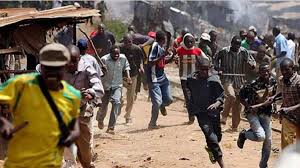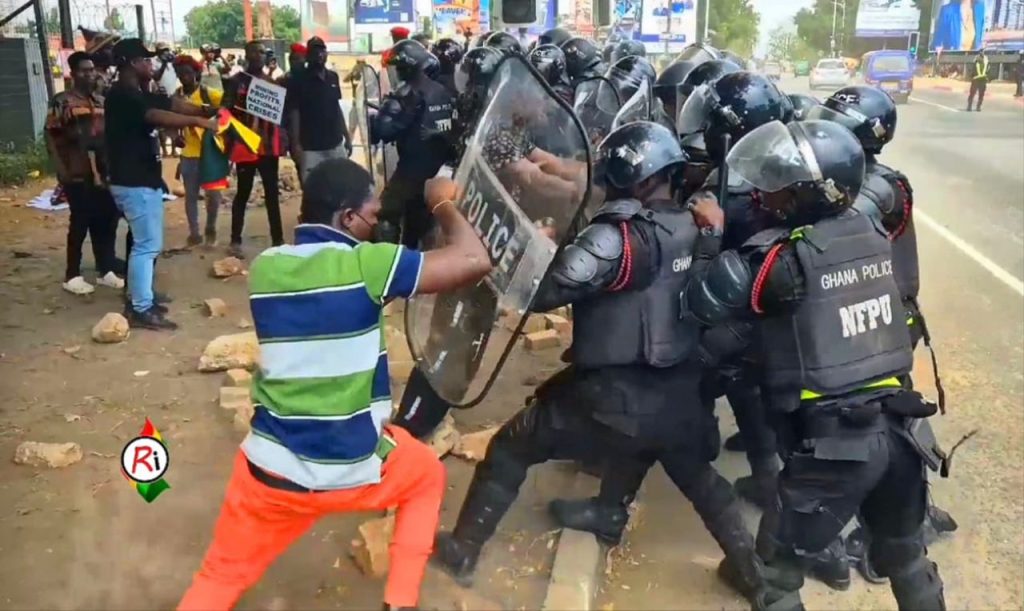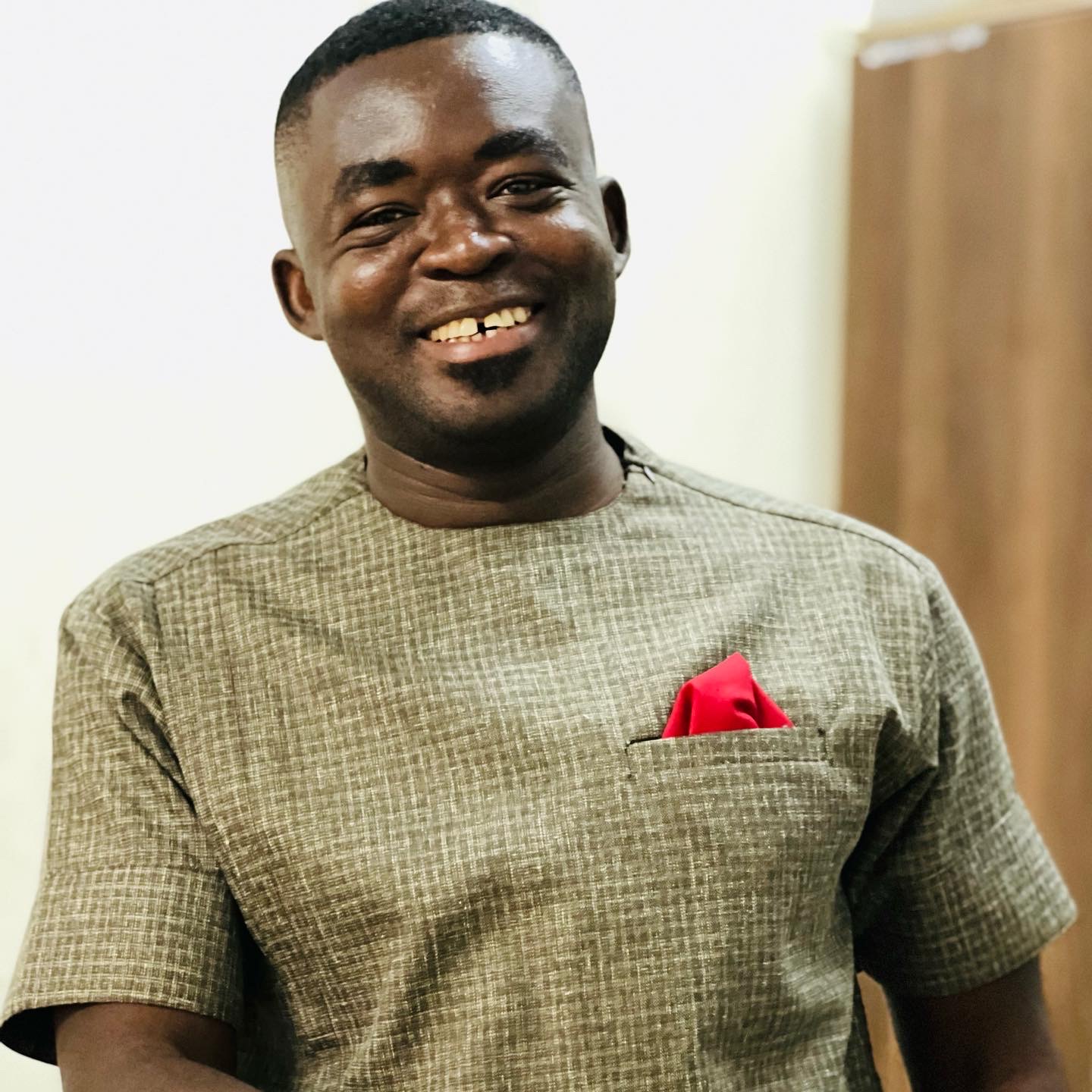According to the African Commission on Human and Peoples’ Rights (ACHPR), the global and African continent recognise the significance of peaceful societies, characterised by safety, confidence in the criminal justice system, and reliance on effective state institutions. The Commission admit that to actualise the goal above, the security forces, more importantly the police force should be very professional and only use reasonable force if the extent to which it is required, plays an indispensable role. However, the Commission acknowledge the use of excessive force by law enforcement officials, for example in the contexts of arrest, the management of demonstrations, enforcement of regulations, or the pursuit of political or private objectives by those who hold power. This undermines the protection of human rights and the rule of law.
The narrative and story around conflict management is significant simply because conflict is difficult to avoid entirely as it is generally argued as inevitable hence the need to have a long-term management of intractable disputes so that they do not escalate out of control and the worst cases, potentially become violent. Even in a democratic state, citizens enjoying their fundamental human rights may conflict with the state or other bodies within the state, which would necessitate conflict management. The issue has to do with how security forces are required to manage such conflicts and protests. As recently occurred in Obuasi, in the Ashanti Region of Ghana where security forces in a bid to manage conflict between local miners popularly called illegal miners and a mining firm, opened fire at the local miners, killing many, reportedly 9 and injuring several of them. A lot of such cases keep occurring now and then which raises questions about the professionalism of the security forces and their competence and knowledge of conflict management or crowd control, especially in applying the power to use force as granted to them in performing their responsibilities of maintaining law, safety and public order, prevention and detection of crime. However, this power to use force is growingly been abused by the security forces in the performance of their duties, or the pursuit of the political or private objectives by those who hold power.

The use of force is unlawful unless it is carried out in accordance with the law applicable to the specific context. The lawfulness of a specific use of force cannot be measured using a single criterion. The lawfulness of the action will depend on the circumstances at the time. The application of physical techniques is to be used only when other methods not involving the use of force have been repeatedly tried and failed, or are judged unlikely to succeed, and action needs to be taken to prevent injury or harm to the officer, other persons or prevent significant property damage. When the use of force is deemed necessary, consideration should be given to whether particular levels of force or intervention are reasonable and proportionate. The general principles of use of force are; honestly perceived that the use of force is necessary in the circumstances, the degree of force is reasonable in the circumstances, the use of force is proportionate to the seriousness of the circumstances and no more force than necessary.
Twumhene (2022) argues that in many cases, an unlawful use of force could be unreasonable but in certain circumstances, substantial force may be required to restrain a suspect who is resisting arrest and suspected of being a danger to the officer or society during the encounter. Twumhene (2022) stressed that the most important part of this enforcement power is that the officer using it is frequently put in a difficult situation because they must arrest a suspect to accomplish their legal goal, and the force they use should be proportionate to the suspect’s resistance force. The foundation of any stable society is the preservation of peace and order. Similar to many other countries, Ghana relies heavily on security personnel to enforce the law and maintain public safety. Their mission does have certain complications, though, particularly concerning the use of force. It is worth noting that, in the exercise of their responsibilities, especially using the power of force in managing conflict or effecting arrest, is not without limitations because it must be used in such a manner as not to violate human rights laws; as a self-defence and personal protection, to protect life and property. Also, active communication and empathy in de-escalation should be resorted to and even in instances where the use of force becomes the only available option, it should be proportionate and necessary. This article therefore addresses how the security forces can manage conflict within the confines of the law without abusing the rights of the citizens with the application of force.
Law and Policy
In the management of conflict, security forces should take into account the need not to abuse the rights of the citizens in the course of the function of their duty. This is because according to Article 3 of the Universal Declaration of Human Rights, everyone has the right to life, liberty and security of person. Also, the International Covenant on Civil and Political Rights, Article 6(1) states that “every human being has the inherent right to life. This right shall be protected by law, and no one shall be arbitrarily deprived of his life”. Article 9(1), also states that “everyone has the right to liberty and security of person”. International human rights law imposes a duty of precaution upon the planning and conduct of law enforcement operations. This means that law enforcement actions must be planned in a manner consistent with the need to minimise damage and injury, and to respect and preserve human life (African Commission on Human and Peoples’ Rights, n.d). This signals the need for security forces not to for the guise of employing the power of force granted them by law, abuse the fundamental human rights, which are entrenched. Chapter 5 of the 1992 constitution of the Republic of Ghana guarantees fundamental human rights such as the right to life, personal liberty, freedom from slavery and forced labour, and rights to privacy and family life. Therefore, the security forces in the exercise of their duty especially managing conflict, are mandated to protect the rights of the people even with the use of the power of force. In addition, Sections 36 and 37 of the Criminal Offences Act 1960 (Act 29) of Ghana stipulates that the use of force during an arrest is limited to what is reasonable and necessary. The law emphasizes that excessive force is not permissible. Therefore, in occasions where security forces take the lives of people while managing conflict is completely unacceptable. An example can be made of the Obuasi killings.
The common law has always recognised a person’s right to act in defence of themselves or others and has established a principle of “duty of care”. The Use of force must be based on an honestly held belief at the time of the incident that it is necessary. Common law is the law created by the rulings and decisions of judges in courts and tribunals. It might also be referred to as ‘case law’ or ‘legal precedent’. The defence of self-defence is one example of a doctrine that is primarily governed by common law principles and has been developed through case law. Self-defence, however, is not without the principles of proportionality and necessity.
Self-Defence and Personal Protection
In managing conflicts, security forces are permitted to use force to defend themselves. The condition under which the use of force is granted to the security forces on citizens is when it is been employed as the last resort for self-defence and personal protection. Section 31 of the Criminal Code 1960, (Act 29) indicates grounds on which force or harm may be justified, which among others include the necessity, for prevention of or defence against crime; or the necessity for defence of property or possession or for overcoming the obstruction to the exercise of lawful rights. Thus a person/security force may apply force for self-defence and personal protection when it becomes necessary and proportionate to the threat. This indicates that the right to use force for self-defence and personal protection is not absolute, it must be used proportionately and as the last resort. The use of lethal force in self-defence is only appropriate in situations involving a real and immediate risk of death or severe harm, either than that, the duty to retreat is generally a prerequisite before resorting to force if it is safe to do so. Also, individuals who resort to lethal force in self-defence are mandated by law to provide evidence as to why lethal force was used and if it is deemed unreasonable the individual may face criminal charges.

Protecting Life and Property
In managing conflicts, the first duty of security forces when called upon is to protect lives and properties. The duty to protect life and property is central to the role of security forces. Especially during conflict situations such as civil unrest or criminal activity, the security forces are required to employ strategies that would help minimize harm to civilians and prevent property damage. The strategies include the use of force if it becomes necessary to employ the power of force to protect life and property but the caveat is the force must be subject to the principle of proportionality. That is the level of force used should be commensurate with the threat posed, and should prioritize non-violent methods whenever possible. Therefore, the officer effecting the arrest will have to determine the degree of force being used and s/he is fully liable in criminal and civil law if excessive force is found to have been employed. If excessive force is used, it will result in the officer having to account for his/her actions, not only in law but also under disciplinary regulations which prohibit the use of unnecessary force during encounters.
Active communication and empathy in de-escalation
The right to use force in protecting lives and property or during civil unrest should not be abused, and must not be the first point of action without exploring the strategy of active communication and empathy in de-escalation. Security forces can effectively de-escalate tense situations through active communication and empathy-building. Armed security guards must be able to defuse tense situations, and help resolve conflicts that would otherwise turn violent by communicating clearly, remaining composed, using nonverbal clues, and active listening. Officers can gain a deeper understanding of conflict dynamics by engaging in dialogue with all parties involved, identifying common ground, and exploring peaceful alternatives to force.
Using proportionate and necessary force
Law enforcement officials are granted various powers, including the power to use force, to uphold their duties of maintaining law and order, public safety, prevention and detection of crime. The use of proportionate and necessary force is permitted under the laws of Ghana in certain conditions, especially in managing conflicts when the officer identifies an immediate threat to his/her life, and it has become necessary to self-defend and when the power to use force becomes necessary to protect life and property. This power according to Amnesty International (2015) is often referred to as the state’s “monopoly of force”, that is, in so far as law enforcement officials are given the power to use force and firearms, this power is granted to them for the fulfilment of their duties to enforce the law and not to use arbitrarily. This power therefore comes with obligations and responsibilities, particularly the human rights that may be affected and which the state and its agents are obliged to respect and protect. It is worrying how security forces in Ghana ignore the need to subject the power to use force in the exercise of their duties through, the necessity element, the proportionality of the force to be used when the necessity box is ticked. It is important to protect human rights even when using the power of force and accepting accountability for their action. This is because the power to use force is not absolute and hence must be the last resort. The principle of necessity states that any use of force by law enforcement must be necessary, meaning there is no other reasonable option available to achieve the objective. Proportionality, the force used should be proportionate to the threat or resistance encountered, as excessive force is unlawful and can result in legal consequences. The police, for instance, are trained to use force or arms only when the opponent is armed, otherwise, there are a lot of tactics to be used to restrain people, de-escalate a situation or deal with an irate crowd. This includes but is not limited to the use of shields and verbal communication.
The use of force must always align with constitutional and human rights, especially those concerning the right to life and freedom from torture and inhumane treatment. Just like any other profession, law enforcement officers are accountable for their actions and are not indemnified from abusing their authority. Ideally, if excessive force is found to have been used, the arresting officer will be held fully accountable under both criminal and civil law, and he or she will also have to answer for their actions under disciplinary regulations that forbid the use of unnecessary force during encounters. The officer must assess the extent of force used taking into account the principles of necessity, proportionality, human rights and accountability.
Conclusion
Admittedly, there is a growing tendency for some people in society to resist arrest or refuse to obey orders, among other public order offences. However, the officer is conscious of achieving his/her objective with the minimum disruption to the citizen. The misuse of force and firearms by law enforcement can jeopardize the legitimacy and public trust in the state, and it is crucial to uphold human rights when law enforcement agents employ the power to use force.
The law enforcement profession is highly challenging, as officials face various situations that require immediate decisions and difficult judgments. These situations are often in stressful and dangerous circumstances. To make the best possible decisions, they need guidance, instruction, and support from a legal and operational framework, which helps them navigate these situations effectively.
Security forces in Ghana who are directly involved in keeping peace and security (i.e, The Police, NIB, Immigration, Customs, Prisons, Fire service and National Security Operatives ) must undergo comprehensive training on the use of force, conflict management, and de-escalation protocols to ensure professional, lawful, and effective handling of volatile situations. This includes understanding legal frameworks, applying proportional and necessary force, mastering verbal and non-verbal de-escalation techniques, and utilizing non-lethal force options where applicable. Scenario-based training, real-life simulations, and psychological assessments should be incorporated to enhance decision-making under pressure. Additionally, fostering community engagement and trust-building initiatives will improve public confidence in security operations while promoting accountability and ethical enforcement practices.
Generally, the role of the military in keeping internal security is quite limited. However, if the military will be actively involved in keeping internal security, then they should be specially trained in conflict management and de-escalation using equal (if not minimal) and proportionate force that is REASONABLY NECESSARY to mitigate a situation.
Author: Abdul-Salam Shaibu [PhD (Candidate), P-G Law, MSc., BSc., Dip.] Ghana, UK.
Reference
African Commission on Human and Peoples’ Rights. Study on the Use of Force by Law Enforcement Officials in Africa. Retrieved on January 23, 2025 from https://achpr.au.int/sites/default/files/files/2023-02/eng-achpr-use-force-study-edited.docx
Amnesty International (2015). Use Of Force: Guidelines For Implementation Of The Un Basic Principles On The Use Of Force And Firearms By Law Enforcement Officials. Retrieved on January 23, 2025 from https://www.amnesty.nl/content/uploads/2017/07/guidelines_use_of_force_eng.pdf?x97316
Twumhene, P. (2022). A Critical Analysis of the Ghana Police Service and Use of Force in Promoting Security. Retrieved on January 23, 2025 from https://irep.ntu.ac.uk/id/eprint/47356/1/Peter%20Twumhene%20MPhil%20Thesis.pdf


